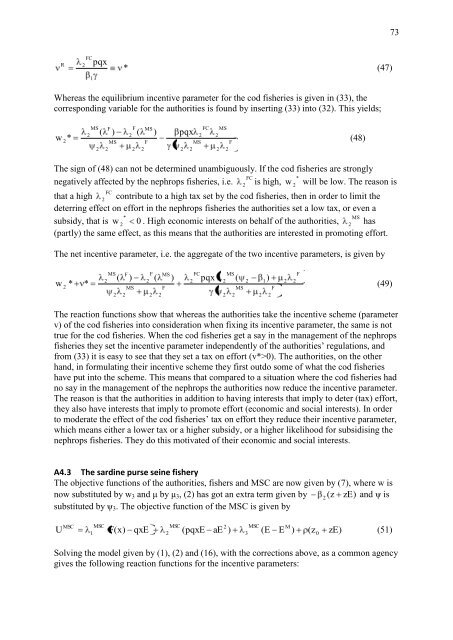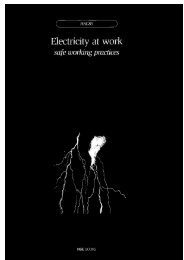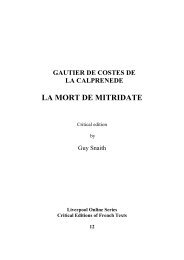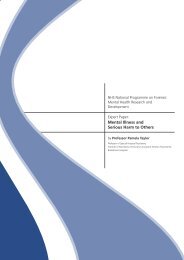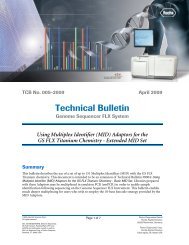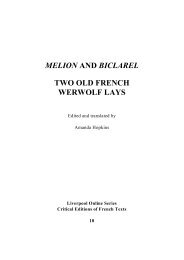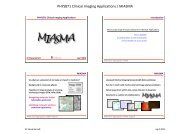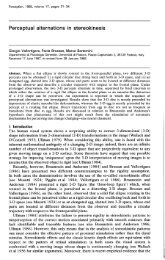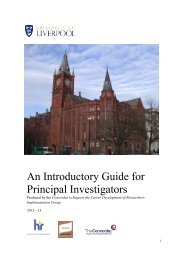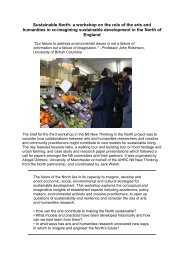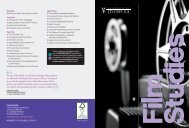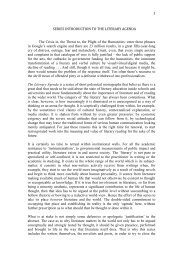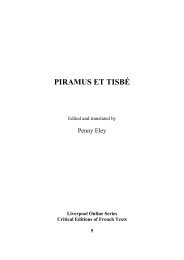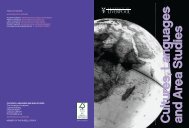Operational tools and adaptive management
Operational tools and adaptive management
Operational tools and adaptive management
You also want an ePaper? Increase the reach of your titles
YUMPU automatically turns print PDFs into web optimized ePapers that Google loves.
R<br />
FC<br />
2<br />
1<br />
pqx<br />
*<br />
Whereas the equilibrium incentive parameter for the cod fisheries is given in (33), the<br />
corresponding variable for the authorities is found by inserting (33) into (32). This yields;<br />
2<br />
MS<br />
2<br />
2<br />
MS<br />
2<br />
F<br />
2<br />
2<br />
F<br />
2<br />
2<br />
FC<br />
2<br />
MS<br />
2<br />
MS<br />
2<br />
F<br />
2 2<br />
F<br />
MS<br />
( ) ( ) pqx<br />
w *<br />
(48)<br />
The sign of (48) can not be determined unambiguously. If the cod fisheries are strongly<br />
negatively affected by the nephrops fisheries, i.e.<br />
FC<br />
*<br />
2 is high, w 2 will be low. The reason is<br />
that a high<br />
FC<br />
2 contribute to a high tax set by the cod fisheries, then in order to limit the<br />
deterring effect on effort in the nephrops fisheries the authorities set a low tax, or even a<br />
subsidy, that is w 0<br />
*<br />
2 . High economic interests on behalf of the authorities,<br />
MS<br />
2 has<br />
(partly) the same effect, as this means that the authorities are interested in promoting effort.<br />
The net incentive parameter, i.e. the aggregate of the two incentive parameters, is given by<br />
w 2 * *<br />
MS<br />
2 (<br />
F<br />
)<br />
MS<br />
F<br />
2 (<br />
MS<br />
)<br />
F<br />
FC<br />
2 pqx<br />
MS<br />
2 ( 2<br />
MS<br />
1)<br />
F<br />
2<br />
F<br />
2<br />
(49)<br />
2 2 2 2<br />
2 2 2 2<br />
The reaction functions show that whereas the authorities take the incentive scheme (parameter<br />
v) of the cod fisheries into consideration when fixing its incentive parameter, the same is not<br />
true for the cod fisheries. When the cod fisheries get a say in the <strong>management</strong> of the nephrops<br />
fisheries they set the incentive parameter independently of the authorities‟ regulations, <strong>and</strong><br />
from (33) it is easy to see that they set a tax on effort (v*>0). The authorities, on the other<br />
h<strong>and</strong>, in formulating their incentive scheme they first outdo some of what the cod fisheries<br />
have put into the scheme. This means that compared to a situation where the cod fisheries had<br />
no say in the <strong>management</strong> of the nephrops the authorities now reduce the incentive parameter.<br />
The reason is that the authorities in addition to having interests that imply to deter (tax) effort,<br />
they also have interests that imply to promote effort (economic <strong>and</strong> social interests). In order<br />
to moderate the effect of the cod fisheries‟ tax on effort they reduce their incentive parameter,<br />
which means either a lower tax or a higher subsidy, or a higher likelihood for subsidising the<br />
nephrops fisheries. They do this motivated of their economic <strong>and</strong> social interests.<br />
A4.3 The sardine purse seine fishery<br />
The objective functions of the authorities, fishers <strong>and</strong> MSC are now given by (7), where w is<br />
now substituted by w3 <strong>and</strong> μ by μ3, (2) has got an extra term given by<br />
substituted by ψ3. The objective function of the MSC is given by<br />
2 ( z zE)<br />
<strong>and</strong> ψ is<br />
MSC<br />
MSC<br />
MSC<br />
2<br />
M<br />
U 1 F(<br />
x)<br />
qxE 2 ( pqxE aE ) 3 ( E E ) ( z0<br />
Solving the model given by (1), (2) <strong>and</strong> (16), with the corrections above, as a common agency<br />
gives the following reaction functions for the incentive parameters:<br />
MSC<br />
zE)<br />
(47)<br />
(51)<br />
73


